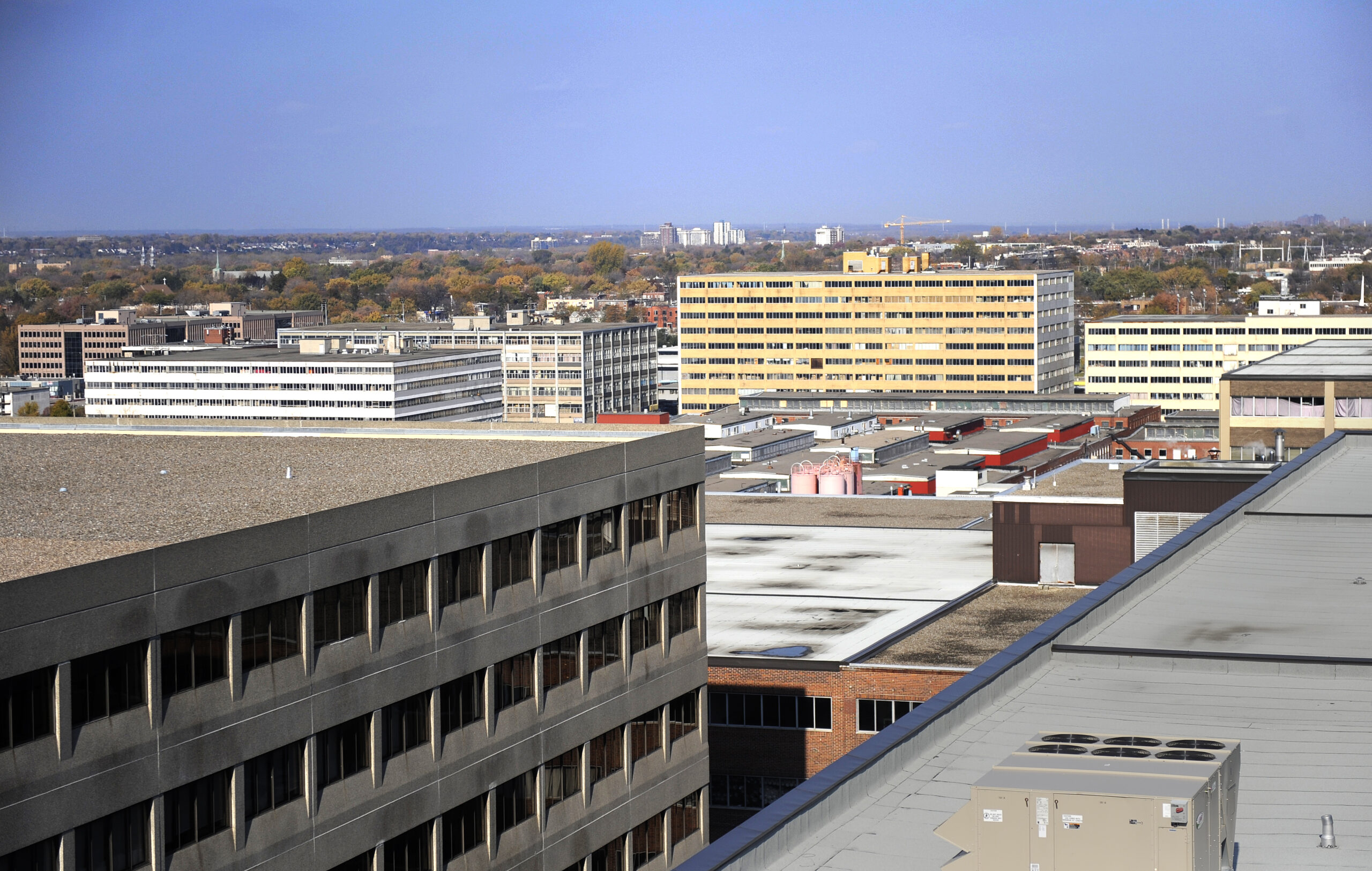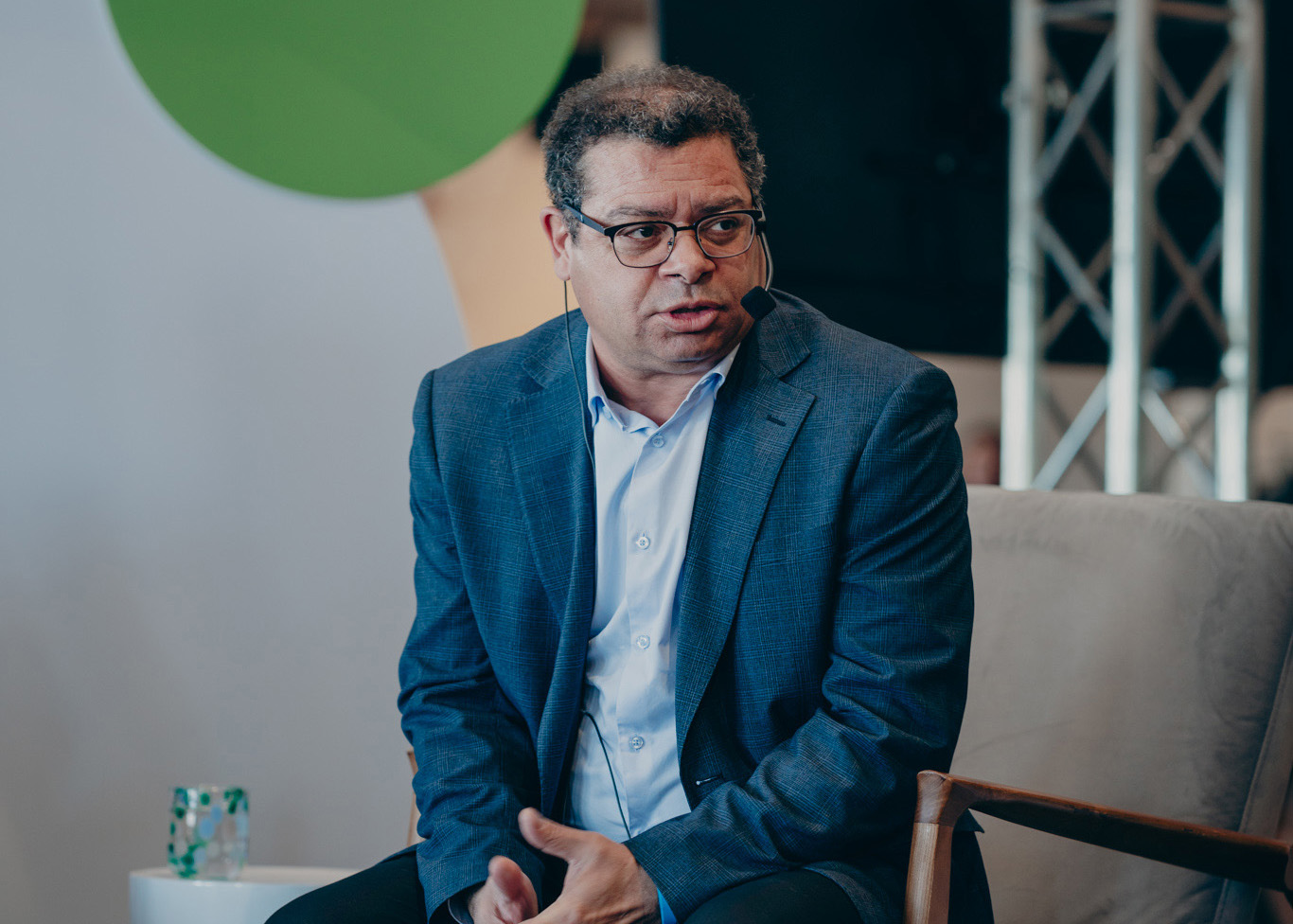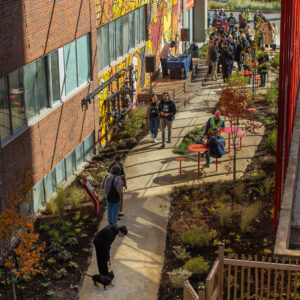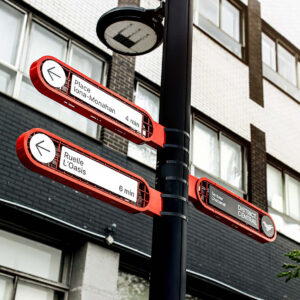NEWS FROM RIGHT HERE
February 12, 2024
Decarbonizing Buildings: A Reality Knocking at Your Door
Environmental regulations and social responsibility requirements are evolving rapidly. Discover what our panelists had to say on the subject at our Real-Estate Forum.


What is decarbonization?
The primary objective of decarbonization is to ensure that a company’s activities no longer generate greenhouse gases (GHGs), with a view to achieving the most neutral environmental record possible. To that end, it’s important that we not limit ourselves to the operations of the company itself, but that we analyze its entire supply chain.
A fast-changing regulatory framework
In the wake of major international gatherings on the environment and of repeated warnings from the Intergovernmental Panel on Climate Change (IPCC), the different levels of government have awakened to the urgency of the situation and are proceeding to introduce ever more stringent regulations:
- With its Plan – Bâtiments zéro émission d’ici 2040 (Zero Emission Buildings by 2040), the city of Montreal is aiming for carbon neutrality in buildings located on its territory in less than 20 years’ time;
- Québec Bill 41 establishes a mandatory declaration process for buildings’ environmental performance. Thus, owners will soon be obliged to display the assigned rating on the building itself;
- A step ahead of Québec, European legislation is increasingly demanding regarding the carbon neutrality of buildings – a tendency that won’t take long to cross the Atlantic.
 Michel Méthot, SOFIAC
Michel Méthot, SOFIAC  Jean-Michel Champagne, HEC MOntréal
Jean-Michel Champagne, HEC MOntréal  Francis Bissonnette, Batimatech
Francis Bissonnette, Batimatech
Solutions within easy reach
Building owners can only benefit from reacting quickly. The good news is that solutions exist and that it’s now possible to take advantage of institutional support to implement them effectively:
- For companies, the first step consists in taking action by drawing up a carbon footprint. There are many tools for that purpose, some of which are accessible free of charge. BOMA, the most important network of commercial building owners and managers in the province, is an excellent source of information in this regard.
- The SOFIAC fund manages capital of $200 million, primarily from the public sector, whose goal is to help owners finance the deployment of approaches and technologies that allow them to significantly reduce their emissions, without tying up their own development capital;
- Hydro-Québec offers a number of subsidized programs to improve buildings’ energy performance;
- By taking advantage of professional assistance, it’s possible to obtain accurate, factual information that will help avoid errors. In that light, it’s essential to analyze the entire life cycle of your building to assess its carbon neutrality index. Few people are aware of it, but the renovation of an existing building is 100 to 200 times more efficient than any new The main reason lies in the fact that the majority of GHGs have already been emitted during the building’s construction. The impact of the second life cycle, once the building has been revitalized, is infinitely less.

The need for raised awareness and a concerted collective effort
Solutions exist, and guidance grows more accessible by the day. Nevertheless, many companies still haven’t set up teams or structures dedicated to the shift towards carbon neutrality. Those firms shouldn’t take their time following suit, because:
- This issue concerns every department in your company, from operations to HR by way of finance, legal and marketing.
- ESG values are growing increasingly important in the eyes of your financing sources, your customers, your tenants, your suppliers, and so on.
- Financial performance is no longer sufficient by itself: social responsibility is today an essential element in the assessment of a company’s performance.
- If the financial aspect takes precedence for you, be aware that performance ratings that reflect buildings’ degree of carbon neutrality – already introduced in Europe – have led to valuation gains in the order of 10 to 12 percent for higher ranked firms. Not taking action has ceased to be a choice.

Thank you to our partners :



AGM 2026 – Notice of meeting
Invitation – AGM 2026 DISTRICT CENTRAL BUSINESSES, THIS EVENT IS FOR YOU! Join the members of the Board of Directors and the SDC District Central team for an in-person Annual…
Read MoreA District Dedicated to Quebec’s Economic Self-Reliance
District Central is 25 million square feet. Photo credit: Branden Desormeau Pandemic, inflation, trade wars with the United States… every time a crisis breeds economic uncertainty, the importance of local…
Read MoreThe Challenges and Requirements of an Ambitious Transformation Process
In recent years, District Central has successfully attracted a wide range of businesses. Its many strengths even earned it the designation of “Metropolitan Innovation Zone” in 2021. Driven by the…
Read More


